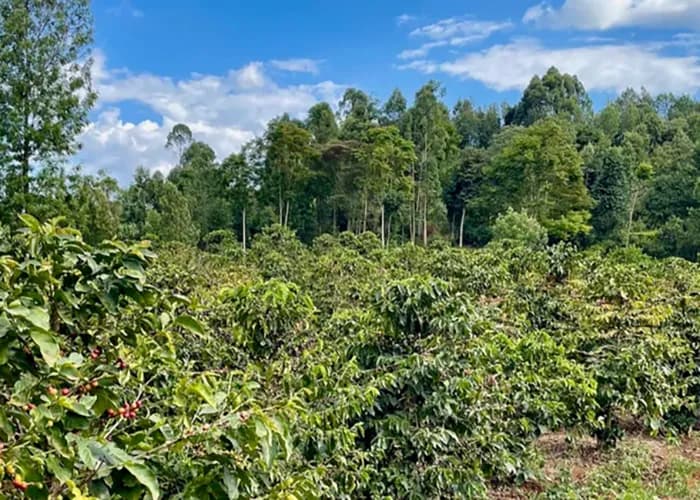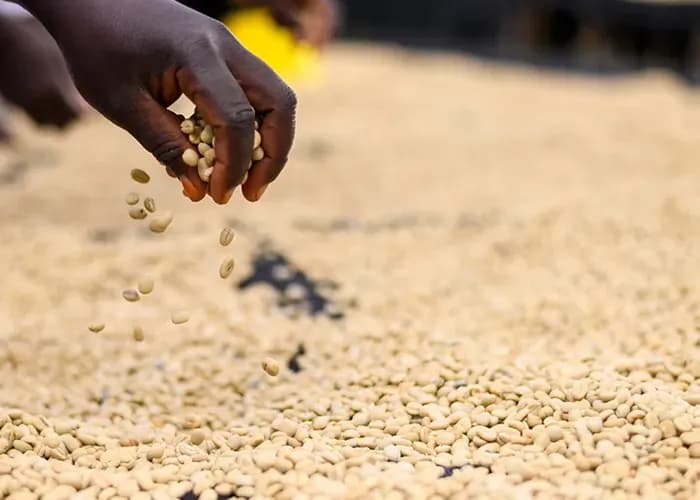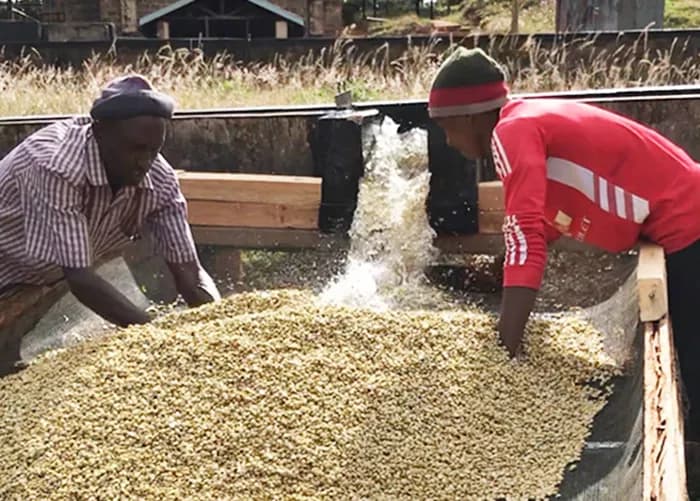Gichathaini AA – Kenya

EU* on orders over 75/99€

On Mondays and Wednesdays

Bratislava, Košická 21
Product detailed description
800 Small Farmers
The Gichatha-ini factory is a wet mill located in Nyeri, Kenya, near the town of Karatina, at an altitude of 1,700 – 1,900 meters. It is one of three factories belonging to the Gikanda Farmers Cooperative Society, from which we have been sourcing since 2012. Approximately 800 small growers from the surrounding areas deliver their cherries to Gichatha-ini. The primary variety processed here is SL 34 (90%), with smaller amounts of SL 28, K7, and Ruiru 11. The cherries are pulped, fermented, washed, and sun-dried. The Gichatha-ini factory holds Fairtrade, UTZ, and Rainforest Alliance certifications. In the Nyeri region of central Kenya, the Gikanda cooperative operates three factories (wet mills) and has approximately 3,000 active farmers. These factories include Gichatha-ini, Kangocho, and Ndaroini Gi-ka-nda-Gikanda.


Harvest and Processing
Farmers hand-pick and deliver cherries to the factory, receiving an advance payment, with the remainder paid after the coffee is sold. The process begins with a three-disc Agaarde pulper, which removes the skin and pulp and sorts the coffee by density. The coffee is then dry-fermented for 18 to 36 hours in concrete tanks, followed by washing and a second density sorting. Finally, the beans are sun-dried for 12 to 20 days on African beds, which are covered during the hottest parts of the day and at night. Harvesting takes place from October to December, following the flowering period from February to March. The coffee is grown on fertile red volcanic Nitisol soil, common in the highlands.
About this Coffee
Cupping score: 87.50
Washing Station: Gichatha-ini
Producer: Gikanda coop
Region: Nyeri
Altitude: 1700 – 1900 masl
Variety: SL28, SL34, Ruiru 11
Processing: washed
About the Variety
SL28 was bred by Scott Laboratories in 1931 from the Tanganyika D.R. variety. It has become very popular across Kenya and is recognized as a variety with exceptional cup quality. It has broad leaves with copper tips and large beans. SL 34 is a French Mission mutation that originated on the Loresho Estate in Kabete. SL34 has broad leaves with bronze tips. It is grown throughout Kenya. SL34 is prized for its high productivity across various climates and wide altitude ranges. It is said to be resistant to drought and heavy rains.
Kenyan Process
The cherries are first pulped to remove the beans, then fermented, washed—sometimes in multiple cycles—and soaked in water. The bean is then dried and rested on specially constructed raised beds.

